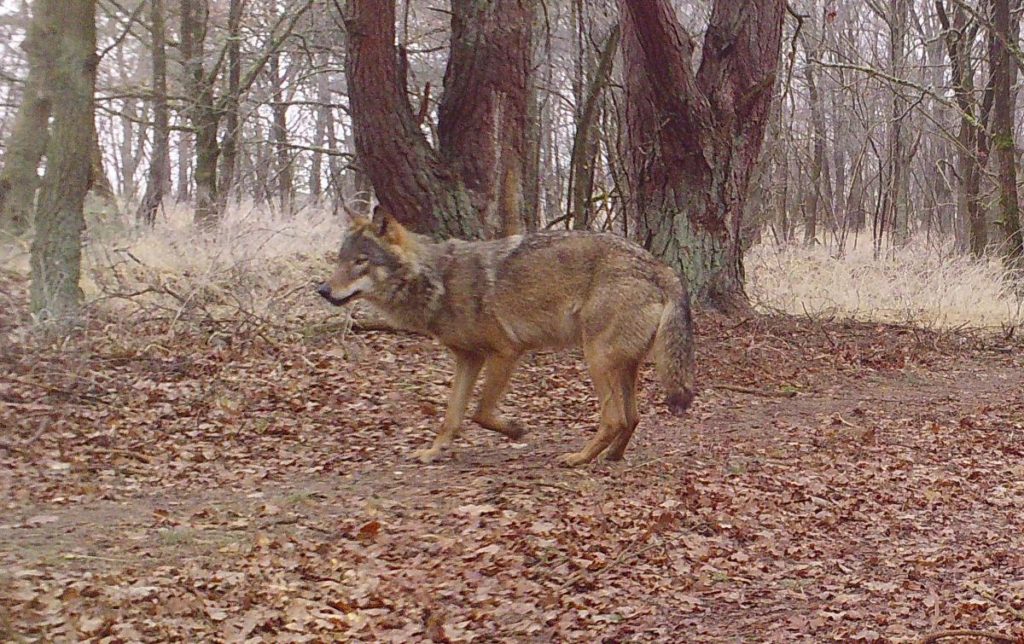Experts from the Institute for Nature and Woodland Research (INBO) have expressed concern over the possible fate of one of the wolf cubs born last year in Limburg province.
The wolf, now grown, has not been seen for several days. Concern has arisen because in the spring two dogs were allowed to eat poisoned meat on the wolves’ terrain. And on the shooting range at Houthalen-Helchteren, more recently, meatballs spiked with poison were discovered.
The missing wolf is one of the cubs born in 2020, Joachim Mergeay of INBO told the VRT.
"The last trace we have of wolf GW1963m is from April 9, 2021."
It had been assumed that the wolf had left its parents’ domain and moved away. However in the six months since the last sighting, no news has come back to INBO from wolf and nature organisations in other countries – who habitually communicate that sort of information to each other.
"DNA samples are taken from all wolf droppings and all attacked livestock,” Mergeay said. “That would allow us to find out where the wolf has gone. But so far we have not found anything."
The fear now is that the wolf has been poisoned. The hostility of local people is no secret, after farmers have lost sheep and calves to the predator, which has also killed dogs. And other animals have fallen victim to the poison, he said.
"On May 10, a German shepherd died at Kelchterhoef pond after eating poison. At the beginning of June, a guard dog belonging to shepherd Johan Schouteden died after eating poisoned meat at the shooting range in Helchteren. Shortly afterwards, the Agency for Nature and Forests also found poisoned meatballs at the firing range."
One of the unintentional victims was the sheepdog belonging to a local farmer in the area. Assuming no-one would want deliberately to kill a sheepdog, it is assumed the animal ate poison intended for a wolf.
“The concurrence of the poisonous meat and the disappearance suggests that there is malicious intent at play,” said Frederik Thoelen of the Nature Help Centre in Oudsbergen.
“In principle, wolves are very smart and would not eat poison. But cubs are inexperienced and curious. They take more risks. You also see that in the collisions, these are always young animals. That is precisely why there is a chance that the cub has tasted that bait after all."

